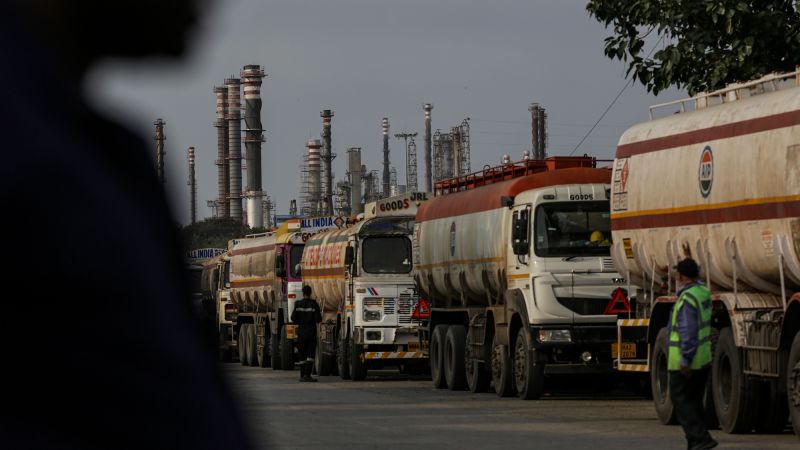On a significant turning point in international trade relations, President Donald Trump announced extensive tariffs on India, formally one of the United States’ key trading partners. On Wednesday, Trump revealed plans to impose a 25% tariff set to commence the following Thursday, along with another 25% tariff that is planned for later this month. These tariffs have been framed by Trump as punitive measures against India for its continued importation of oil and gas from Russia, which has raised substantial concerns amidst ongoing conflicts stemming from Russia’s invasion of Ukraine.
The impact of these tariffs could be substantial, raising the overall tariff on goods imported from India to a staggering 50%. This scenario would mark one of the highest tariff rates imposed by the U.S., particularly on a nation that is the world’s fifth-largest economy. The escalation signifies a deepening trade conflict with New Delhi and highlights the Trump administration’s broader strategy of implementing secondary sanctions against countries perceived as supporting Russia’s military efforts.
The executive order issued by Trump articulates that India is “currently directly or indirectly importing Russian Federation oil,” and insists that the application of these additional tariffs “is necessary and appropriate.” Such an aggressive stance towards a major trading partner has heightened tensions and placed American trade policy at the crossroads of geopolitics. While the first 25% tariff is set to be enacted imminently, the second set related to the Russian energy imports will take effect within 21 days, emphasizing the urgency of the U.S. government’s position on the matter.
In a document accompanying the order, Trump referenced information obtained from senior officials regarding actions taken by the Russian government in relation to the Ukraine situation. This connection illustrates how trade policies are increasingly being intertwined with broader geopolitical considerations. The announcement of the tariffs coincided dramatically with the conclusion of a meeting between Trump’s foreign envoy, Steve Witkoff, and Russian President Vladimir Putin, raising questions about the timing and its implications on U.S.-Russia relations.
Trump has previously stated that India’s purchasing of oil from Russia not only contradicts the U.S. stance on the violation of Ukrainian sovereignty but also reflects poorly on India’s commitment to supporting global democratic norms. He expressed in a recent social media statement that “India is not only buying massive amounts of Russian Oil, they are then selling it on the Open Market for big profits.” This assertion underscores Trump’s belief that Indian actions are aggravating the humanitarian crisis in Ukraine, portraying India as indifferent to the suffering caused by the Russian military actions.
In response, Indian officials have defended their position, arguing that they are being unfairly targeted by the U.S. and European Union. The Ministry of External Affairs in India articulated that the country turned to Russian oil imports due to traditional supply chains being diverted towards Europe following the onset of the war in Ukraine. They positioned their actions as necessary to ensure energy security for Indian consumers in a fluctuating global market.
Further clarifying their stance, spokesperson Randhir Jaiswal stated, “India’s imports are meant to ensure predictable and affordable energy costs to the Indian consumer. They are a necessity compelled by (the) global market situation.” This declaration captures the complex intersection of national interests, energy security, and international trade law that have emerged in light of recent geopolitical tensions.
As the situation continues to evolve, the story remains a developing issue that could have significant implications for U.S.-India relations, global energy markets, and the geopolitical landscape in the context of the ongoing conflict between Russia and Ukraine. The forthcoming updates on this matter will be crucial for understanding how both nations will navigate their economic ties amid increasing global pressures.











